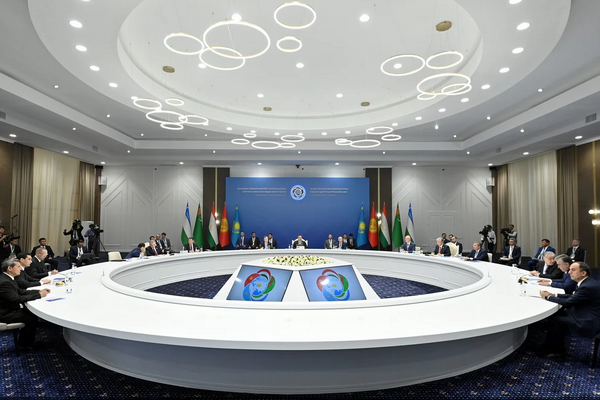
Regional industrial cooperation is becoming an important factor in the development of Central Asia
Tashkent, Uzbekistan (UzDaily.com) – On 21 July 2022, the Fourth Consultative Meeting of the Heads of State of Central Asia took place in Cholpon-Ata, Kyrgyz Republic. The summit, without exaggeration, marks a new stage in the relations of the countries of the region, demonstrated the desire of all Central Asian states to build up five-sided cooperation, and actively introduce new forms of economic cooperation.
It is important to note that in recent years, significant progress has been made between our countries in deepening integration processes. Together with the countries of the region, investment funds, centers of industrial cooperation and border trade zones are being created.
As a result, since 2016 to 2021 the total foreign trade turnover of the countries of the region increased by 54%, reaching US$167 billion, 3 times - from US$5.5 billion to US$16.5 billion, intra-regional trade showed growth, the number of joint ventures increased five times, the share of investments in Central Asia from the total volume in the world increased from 1.6% to 2.5%, amounting to in 2021. US$34.3 billion, while mutual investments increased by 3.2 times. As a result, by 19.6% to US$328.7 billion in 2021. increased regional GDP.
These figures once again prove that today our countries are in high demand for new joint projects.
This was also noted by the President of Uzbekistan Shavkat Mirziyoyev in his speech, pointing out that the business circles of our countries are interested in creating industries using competitive advantages and the factor of mutual complementarity of the economies of the countries of the region. In this regard, he proposed to develop common approaches to the formation of the Central Asian space of industrial localization and import substitution on the basis of national industrial development programs. At the same time, the leader of Uzbekistan called for special attention to be paid to the issues of digitalization of economic sectors, which will reduce costs and ensure the competitiveness of products.
The initiative put forward by the head of Uzbekistan received the full support of the partner countries and was reflected in the Roadmap adopted at the end of the summit for the development of regional cooperation for 2022-2024.
Indeed, the deepening of industrial cooperation between the Central Asian countries will create a number of new opportunities both for unlocking the economic potential of the region as a whole, and of each country in particular.
Firstly, the organization’s member countries will expand opportunities for sharing existing technologies and sharing mutual knowledge and experience. The deepening of cooperation ties in this regard creates the conditions for a more efficient use of scientific, technical and experimental design developments.
Secondly, conditions will be created for turning Central Asia into a production and logistics link in the global value chain, which is especially important against the background of the global trend of economic diversification and relocation of industrial production. The growth of industrial potential will not only increase the volume and range of intra-regional trade, but also load transport and logistics capacities, thereby increasing the region’s attractiveness as a transit hub.
Thirdly, the level of competitiveness of national economies will increase. The expansion of interstate cooperation in the production of industrial products, the full use of the economies of scale, the widespread involvement of modern technologies in the economy, will undoubtedly increase the competitiveness of national products in world markets.
Fourth, new jobs will be created. This aspect is relevant for the economy of each country. Because rising unemployment causes a reduction in gross domestic product and a slowdown in economic development.
Fifth, the volume of exports will increase. In particular, the development of cooperation relations will lead to the growth of commodity production and the acceleration of trade relations between countries.
In general, raising the level of industrial cooperation and production cooperation in Central Asia is certainly in the interests of all countries in the region. This will contribute to strengthening the market development model in the countries of the region, joint entry into foreign markets and a consolidated response to global competition, changing the structure of economies in favor of a non-resource orientation and their diversification, developing high-tech production and reducing unemployment.
Akram Ayubjanov,
Chief Researcher, ISMI under the President of the Republic of Uzbekistan